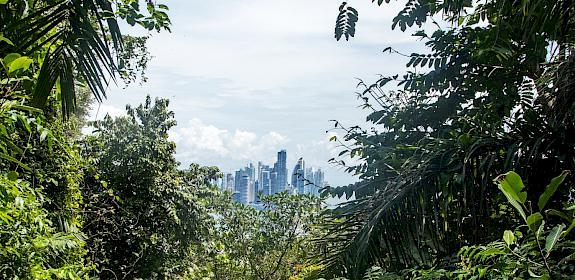Large pangolin seizure highlights timeliness of re-forming IUCN-SSC Pangolin Specialist Group
Ha Noi, Viet Nam, 27th April, 2012—Local enforcement authorities have seized 304 kilograms (71 individuals) of live Pangolins in Nghe An Province in the north central coast of Vietnam after receiving a tip off that a car was transporting the endangered species on Tuesday.

The driver of the car, from Nghe An Province, failed to show police the legal documents required for owning and transporting the animals, and was taken into custody for further investigation. Initial investigations have led authorities to believe that the pangolins originated in Malaysia and were smuggled across the Lao PDR border into Viet Nam from where the consignment would have gone on to China.
Pangolins, or scaly anteaters, are distributed across large areas of Africa and Asia. In Southeast Asia, the animals are becoming increasingly threatened due to illicit international trade.
Pangolins are illegally harvested from countries throughout Southeast Asia and are often smuggled to consumer markets in China and Vietnam, where their scales are used in traditional medicines and the meat is considered a delicacy.
An increasingly affluent consumer market in these countries is driving the demand for pangolin products, which has led to a sharp decrease in their population throughout the region.
“TRAFFIC congratulates authorities in Viet Nam on this important seizure as well as other recent detections. Countries with wild pangolin populations and those key to the on-going illegal trade are ramping up efforts to combat the problem,” said Dr Naomi Doak, Greater Mekong Programme Coordinator for TRAFFIC.
“However, without stricter enforcement of current laws and tougher sentences for illegal wildlife traders, the future for this species in Asia looks very bleak,” added Doak.
TRAFFIC also urged authorities to incinerate any dead pangolins and transfer those still alive to a rescue centre, to ensure no one profits from the crime.
In 2010, TRAFFIC Southeast Asia reported that one syndicate in Sabah, Malaysia alone was responsible for trafficking 22,000 pangolins over an 18-month period. Since then, illegal trade in live pangolins, its meat and scales has continued to be reported throughout Asia
In response to threats to pangolin populations in both Africa and Asia, including persistent illegal trade, the IUCN, International Union for Conservation of Nature, Species Survival Commission (IUCN-SSC) Pangolin Specialist Group was recently re-formed.
“The IUCN-SSC Pangolin Specialist Group aims to further our understanding of pangolins and the threats they face,” stated Dan Challender, Co-Chair of the re-formed group and a researcher studying pangolin trade in Asia, based at the University of Kent’s Durrell Institute of Conservation and Ecology (DICE).
The group’s mission is to “be a global voice for pangolins by working to advance knowledge and understanding of pangolins worldwide, their conservation, natural history and ecology and to catalyze action to meet these needs.”
TRAFFIC in Southeast Asia has led on a number of pangolin focused initiatives in recent years and continues to monitor trade levels, actively engage in researching the dynamics of the pangolin trade, and assist authorities in their efforts to clamp down on the illegal trade of this species.
“The formation of this Specialist Group is a great step forward” says Chris R. Shepherd, Deputy Regional Director of TRAFFIC in Southeast Asia. “Bringing together a wide range of expertise and dedicated people to focus on the conservation of these amazing animals is key to their long term survival.”




